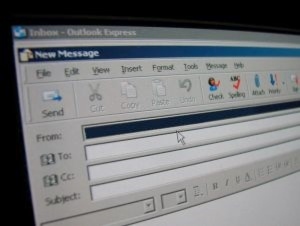December 2014 will go down in the history books as Cuban Missile Crisis Lite. It's strangely fitting that Sony caved to hackers (or maybe even just one hacker) who threatened harm to American moviegoers at the same time that President Obama announced renewed relations with Cuba. Both Sony execs and the White House must have missed the Winston Churchill page in their "quote-a-day" calendar: "An appeaser is one who feeds the crocodile, hoping it will eat him last."
In the real Cuban Missile Crisis, national security was under direct and specific threat. Russia, our acknowledged cold-war enemy, had nuclear missiles stationed in Cuba directly aimed at the U.S., just 90 miles away. Each missile carried a 1 megaton warhead, 60x greater than Hiroshima's, with a range as far as Washington, DC.
Sony, on the other hand, was facing embarrassment over leaked emails that exposed their executives' snarky sides, and an obscure Internet threat that wasn't even sent directly to them, in English so bad it was clearly lifted straight from Google Translate.
Why the panic? In an average year, more Americans will die from furniture crushing them to death than from terrorism. The National Counterterrorism Center wades through almost 10,000 terrorist tips per day, and then there are the thousands of combined threats handled by the FBI, state, and local authorities. So on a freak-out scale, the possible danger from some hackers upset about a movie should warrant a shoulder shrug. Instead, Sony pulled a 40-million-dollar release and increased their already bad PR by looking like wimps, making the rest of us look wimpy with them. Meanwhile, the world watches and laughs as Sony, representing all the supposed evils of decadent American culture that the rest of the world loves to hate, gives a whole new meaning to groveling.
As bad as Sony's cave-in, though, is the ridiculously false "shock" at the hackers' success in exposing the emails. The incredible naiveté of everyone involved is best expressed by comedian Chris Rock, who was asked about the hacking scandal in a Q and A about his own upcoming Sony movie. "This whole thing is just scary. It's email, it's your private stuff. And the whole town is scared...nobody knows what to do."
Here's a thought. How about, "Don't gossip in your corporate email account." Because it doesn't belong to you. It's not private.
This is America, after all, land of the freedom of snark and back-biting. So if you want to gossip, if you want to be catty-- hell, if you want to be racist or anti-Semitic or sexist--you have that freedom and you should have that freedom. But on your own dime. In your own time, in your own home, in your private phone conversations (okay, NSA and Donald Sterling, maybe not-so-private phone calls, but seemingly), you can be as nasty as you want. I might not like it, and if I hear about it I might think you're an ass, but I'll always defend your right to say or write it.
Privately. You can say what you want...privately. But you really do have to be living under a rock if you think, in 2014, that company emails are the place for saying anything you wouldn't otherwise whisper furtively in person or burn if you wrote it on paper. And I'm not even talking about hackers. Every single network administrator in every single company, large and small, has access to your email. Have these Sony idiots never had to call IT because their password didn't work? How do they think the IT people get in--magic network beans that self-destruct after use?
That's not to say that IT workers don't observe their own code of omerta to respect your privacy. The vast majority of them most assuredly do, or else they would find themselves jobless. But it doesn't change the fact that they could expose you, if they wanted to.
And on a purely legal note, surely Sony is no different than any other business that requires employees, from studio chief Amy Pascal down to the dishwasher in the company cafeteria, to sign an agreement that spells out to whom the email account belongs. It belongs to the company, and the company has the right to read, confiscate, publish or do whatever they want with your "personal" communications. The same thing applies to your texts on a company cell phone, your messages on a desk phone, or your memos and letters on company letterhead. Seriously, people, we've been using email for over 20 years--is this really a news flash?
So does it actually come as such a surprise that hackers in North Korea, with nothing really better to do all day than starve from lack of food, can expose your quips, put-downs, and general cattiness?
And in case you're wondering, deleting them won't help. If we've learned nothing else from this affair, think of poor Iris Lerner, the former IRS bigwig who thought she was saved when the IRS claimed a mysterious fire destroyed all her mean emails about Republicans. Oops, 30,000 of them seem to have now reappeared. Lesson learned, anyone?

